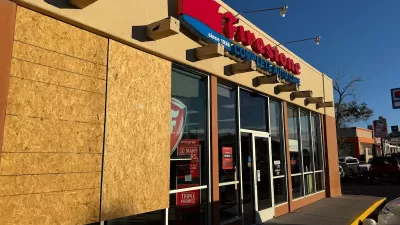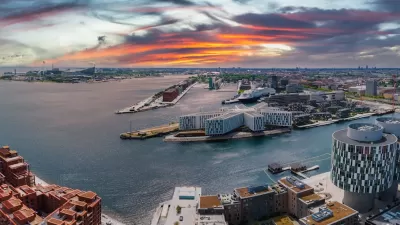A unique blend of religious beliefs, state policies and capitalist interests are reshaping Mecca for the worse, critics argue, at the expense of its most prized cultural assets.
In Mecca, the spiritual capital of the Islamic world, a decade of unbridled demolition of historic sites, including the house of the prophet's wife, Khadijah, has been matched only by the construction of new buildings of gargantuan proportions. Abraj al-Bait, the second tallest building in the world, now stands in the place of a late 18th century citadel. This $15 billion project, "which rises like Big Ben on steroids," is just the first of many projects fueled by petrodollars now under way in Mecca, reports Oliver Wainwright, and emblematic of the destructive building craze that Mecca has seen in the last 10 years.
Saudi Arabian officials have no qualms about the continued demolition of historic sites, as they push forward with the building spree, asserts Wainwright. "No one has the right to interfere in what comes under the state's authority," said a Saudi Islamic affairs minister in 2002 when rebuffing international outcry over the destruction of the 18th century citadel, adding "[t]his development is in the interest of all Muslims all over the world."
Saudi Arabia's extreme version of eminent domain and irreverence for historic preservation efforts is rooted in "state-endorsed wahhabism, the hardline interpretation of Islam that perceives historical sites as encouraging sinful idolatry. So anything that relates to the prophet could be in the bulldozer's sights," adds Wainwright.
FULL STORY: Mecca's mega architecture casts shadow over hajj

Trump Administration Could Effectively End Housing Voucher Program
Federal officials are eyeing major cuts to the Section 8 program that helps millions of low-income households pay rent.

Planetizen Federal Action Tracker
A weekly monitor of how Trump’s orders and actions are impacting planners and planning in America.

Ken Jennings Launches Transit Web Series
The Jeopardy champ wants you to ride public transit.

Driving Equity and Clean Air: California Invests in Greener School Transportation
California has awarded $500 million to fund 1,000 zero-emission school buses and chargers for educational agencies as part of its effort to reduce pollution, improve student health, and accelerate the transition to clean transportation.

Congress Moves to End Reconnecting Communities and Related Grants
The House Transportation and Infrastructure Committee moved to rescind funding for the Neighborhood Equity and Access program, which funds highway removals, freeway caps, transit projects, pedestrian infrastructure, and more.

From Throughway to Public Space: Taking Back the American Street
How the Covid-19 pandemic taught us new ways to reclaim city streets from cars.
Urban Design for Planners 1: Software Tools
This six-course series explores essential urban design concepts using open source software and equips planners with the tools they need to participate fully in the urban design process.
Planning for Universal Design
Learn the tools for implementing Universal Design in planning regulations.
Heyer Gruel & Associates PA
Ada County Highway District
Institute for Housing and Urban Development Studies (IHS)
City of Grandview
Harvard GSD Executive Education
Toledo-Lucas County Plan Commissions
Salt Lake City
NYU Wagner Graduate School of Public Service




























